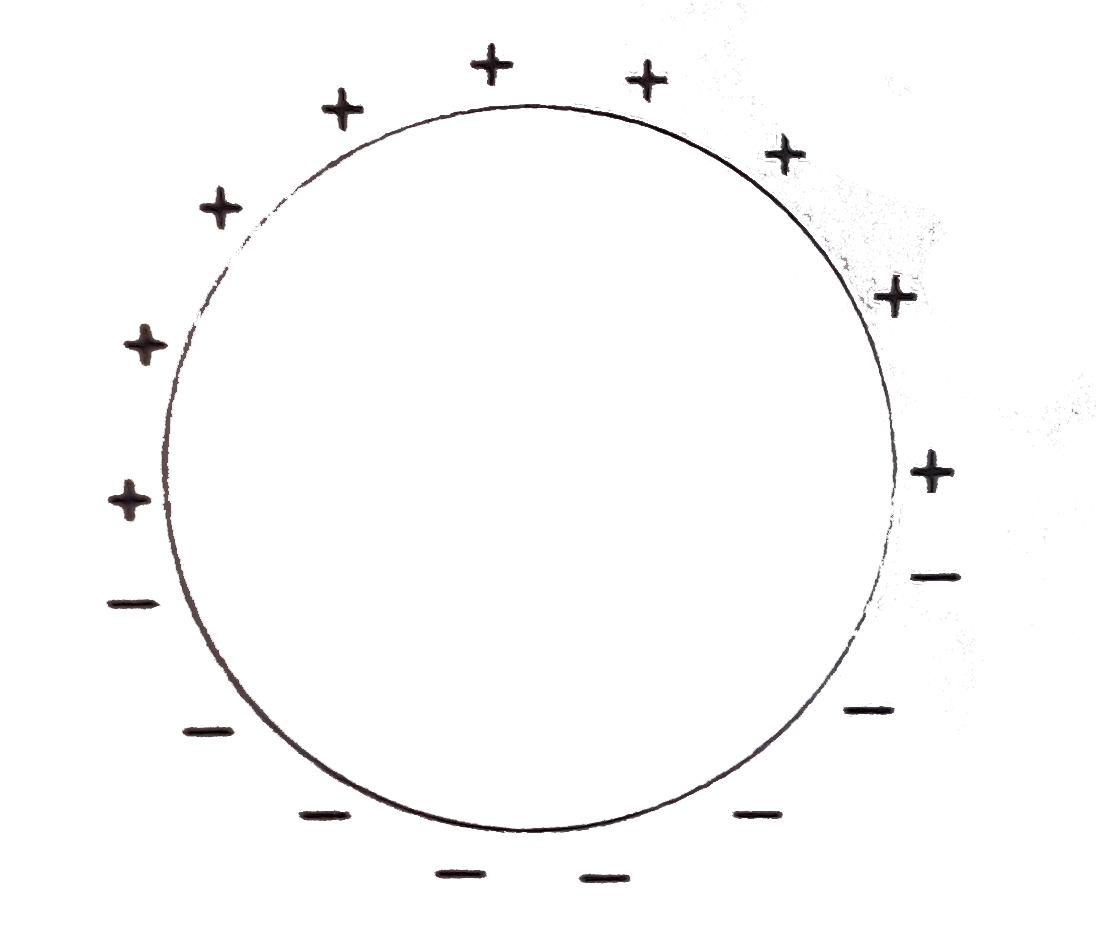Metal sol is negatively charged. True/False
The correct Answer is:T
To determine whether the statement "Metal sol is negatively charged" is true or false, we can analyze the properties of metal sols and their behavior in terms of charge.
1. Understanding Metal Sols:
- Metal sols are colloidal solutions where metal particles are dispersed in a liquid. These metal particles can be formed from metals like arsenic, gold, silver, etc.
2. Electron Donation by Metals:
- Metals are known to be good electron donors. When a metal atom donates electrons, it becomes positively charged. For example, if a metal atom loses one or more electrons, it will acquire a positive charge.
3. Formation of Metal Sols:
- When metal ions are dispersed in a colloidal solution, they can ionize. For instance, if we take arsenic sulfide (As2S3), it can dissociate into arsenic ions (As3+) and sulfide ions (S2-).
4. Charge of the Metal Sol:
- In the case of metal sols, while the metal ions themselves are positively charged, the negatively charged ions (like S2-) can adsorb onto the surface of the metal particles. This adsorption of negatively charged ions leads to the overall charge of the sol being negative.
5. Example of Ferric Hydroxide:
- Another example is ferric hydroxide (Fe(OH)3), which dissociates into ferric ions (Fe3+) and hydroxide ions (OH-). The hydroxide ions, which are negatively charged, can also adsorb onto the surface of the ferric hydroxide particles, contributing to a net negative charge.
6. Conclusion:
- Based on the behavior of metal sols and the adsorption of negatively charged ions, we can conclude that the statement "Metal sol is negatively charged" is True.
Final Answer:
True - Metal sol is negatively charged.
- Metal sols are colloidal solutions where metal particles are dispersed in a liquid. These metal particles can be formed from metals like arsenic, gold, silver, etc.
- Metals are known to be good electron donors. When a metal atom donates electrons, it becomes positively charged. For example, if a metal atom loses one or more electrons, it will acquire a positive charge.
- When metal ions are dispersed in a colloidal solution, they can ionize. For instance, if we take arsenic sulfide (As2S3), it can dissociate into arsenic ions (As3+) and sulfide ions (S2-).
- In the case of metal sols, while the metal ions themselves are positively charged, the negatively charged ions (like S2-) can adsorb onto the surface of the metal particles. This adsorption of negatively charged ions leads to the overall charge of the sol being negative.
- Another example is ferric hydroxide (Fe(OH)3), which dissociates into ferric ions (Fe3+) and hydroxide ions (OH-). The hydroxide ions, which are negatively charged, can also adsorb onto the surface of the ferric hydroxide particles, contributing to a net negative charge.
- Based on the behavior of metal sols and the adsorption of negatively charged ions, we can conclude that the statement "Metal sol is negatively charged" is True.
True - Metal sol is negatively charged.
Topper's Solved these Questions
- SURFACE CHEMISTRYBOOK - CENGAGE CHEMISTRY ENGLISHCHAPTER - SURFACE CHEMISTRYEXERCISE - Archives Multiple Correct
3 Videos
- SURFACE CHEMISTRYBOOK - CENGAGE CHEMISTRY ENGLISHCHAPTER - SURFACE CHEMISTRYEXERCISE - Archives Single Correct
6 Videos
- SURFACE CHEMISTRYBOOK - CENGAGE CHEMISTRY ENGLISHCHAPTER - SURFACE CHEMISTRYEXERCISE - Exercises Fill In The Blanks
37 Videos
- SOLUTIONSBOOK - CENGAGE CHEMISTRY ENGLISHCHAPTER - SOLUTIONSEXERCISE - Ex 2.3 (Objective)
9 Videos
- SYNTHETIC AND NATURAL POLYMERSBOOK - CENGAGE CHEMISTRY ENGLISHCHAPTER - SYNTHETIC AND NATURAL POLYMERSEXERCISE - Exercises Assertion Reasoning
10 Videos
Similar Questions
Knowledge Check
Assertion : When KI solution is added to AgNO3 solution, negatively charged sol results .
Reason : Negative charge of sol is due to preferential adsorption of iodide ions from the dispersion medium.AIf both assertion and reason are true and reason is the correct explanation of assertion.BIf both assertion and reason are true but reason is not the correct explanation of assertionCIf assertion is true but reason is falseDif both assertion and reason are falseOn adding AgNO3 solution to KI solution, a negatively charged colloidal sol will be formed in which of the following conditions ?
A100 mL of 0.1 M AgNO3 + 100 mL of 0.1 M KIB100 mL of 0.1 M AgNO3 + 50 mL of 0.2 M KIC100 mL of 0.2 M AgNO3 + 100 mL of 0.1 M KID100 mL of 0.1 M AgNO3 + 100 mL of 0.15 M KI
Which of the following sols is negatively charged?
View Solution_E01_735_Q01.png) True or False
True or False
View SolutionAssertion : Half of the ring is uniformly positively charged and other half uniformly negatively charged. Then, electric field is zero at centre. Then , electric field is zero at centre.

Reason : At the centre of uniformly charged ring, electric field is zero. 1)If both Assertion and Reason are correct and Reason is the correct explanation of Assertion 2)If both Assertion and Reason are correct but Reason is not the correct explanation of Assertion 3)If Assertion is true but Reason is false 4)If Assertion is false but Reason is true
View SolutionWhich of the following is/are negatively charged sol?
View SolutionCadmium sulphide sol has negative charge. The maximum power of coagulation is of:
View SolutionAn AgI sol carries a negative charge. The maximum precipitating power is possessed by which of these electrolytes?
View Solution